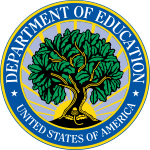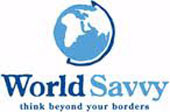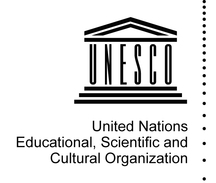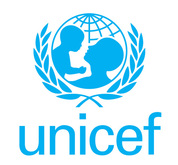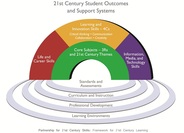|
The expression of values and priorities includes an array of perspectives relating to the umbrella concept of global education.I have chosen definitions that have supported, shaped, guided, and are relevant to my study.
|
Education for Sustainable Development
"Education for Sustainable Development allows every human being to acquire the knowledge, skills, attitudes and values necessary to shape a sustainable future.
Education for Sustainable Development means including key sustainable development issues into teaching and learning; for example, climate change, disaster risk reduction, biodiversity, poverty reduction, and sustainable consumption. It also requires participatory teaching and learning methods that motivate and empower learners to change their behaviour and take action for sustainable development. Education for Sustainable Development consequently promotes competencies like critical thinking, imagining future scenarios and making decisions in a collaborative way."
Source: UNESCO - http://www.unesco.org/new/en/education/themes/leading-the-international-agenda/education-for-sustainable-development/
Education for Sustainable Development means including key sustainable development issues into teaching and learning; for example, climate change, disaster risk reduction, biodiversity, poverty reduction, and sustainable consumption. It also requires participatory teaching and learning methods that motivate and empower learners to change their behaviour and take action for sustainable development. Education for Sustainable Development consequently promotes competencies like critical thinking, imagining future scenarios and making decisions in a collaborative way."
Source: UNESCO - http://www.unesco.org/new/en/education/themes/leading-the-international-agenda/education-for-sustainable-development/
Global Citizenship
|
"Education for global citizenship helps enable young people to develop the core competencies which allow them to actively engage with the world, and help to make it a more just and sustainable place.
Global citizenship is not an additional subject, it is an ethos. It is best implemented through a whole-school approach, involving everyone from learners themselves to the wider community. It can also be promoted in class through teaching the existing curriculum in a way that highlights aspects such as social justice, the appreciation of diversity and the importance of sustainable development." Source: http://www.oxfam.org.uk/education/global-citizenship |
Global Competency
Global competency is, "The knowledge and skills people need to understand today's flat world and to integrate across disciplines so that they can comprehend global events and create possibilities to address them. Global competencies are also the attitudinal and ethical dispositions that make it possible to interact peacefully, respectfully, and productively with fellow human beings from diverse geographies." ~ Fernando M. Reimers
Educating for Global Competency
Educating for Global Competency
|
"Global competencies comprise the knowledge and skills individuals need to be successful in today's flat, interconnected world and to be fully engaged in and act on issues of global significance."
Sources: 1) Educating for Global Competence: Preparing Our Youth to Engage the World by Veronica Boix Mansilla and Anthony Jackson; Council of Chief State School Officers’ EdSteps Initiative & Asia Society Partnership for Global Learning 2) Succeeding Globally Through International Education: U.S. Department of Education International Strategy 2012 - 2016 |
|
"Global competence is the disposition and capacity to understand and act on issues of global significance. Globally competent individuals possess and apply the following qualities, characteristics, and abilities to learning about and engaging with the world. Educators who aspire to help students become globally competent must both develop these attributes in themselves and find ways to foster them in students."
Source: World Savvy - http://www.worldsavvy.org/global-competence/ |
Human Rights Education
|
"Human rights education is an integral part of the right to education and is increasingly gaining recognition as a human right in itself. Knowledge of rights and freedoms is considered a fundamental tool to guarantee respect for the rights of all. UNESCO’s work in human rights education is guided by the World Programme for Human Rights Education.
Education should encompass values such as peace, non-discrimination, equality, justice, non-violence, tolerance and respect for human dignity. Quality education based on a human rights approach means that rights are implemented throughout the whole education system and in all learning environments." Source: UNESCO - http://www.unesco.org/new/en/education/themes/leading-the-international-agenda/human-rights-education |
International Education or Education for International Understanding
|
" International education is a process that, by means of the Universal Declaration of Human Rights and the United Nations system ís ideals and objectives, strives towards achieving attitudes and aptitudes that favour peace, human security and sustainable development"
Source: What is International Education? UNESCO Answers by Juan Ignacio MartÌnez de Morentin de Goñi http://unesdoc.unesco.org/images/0013/001385/138578e.pdf |
Peace Education
|
"Peace education in UNICEF refers to the process of promoting theknowledge, skills, attitudes and values needed to bring about behaviour changes that will enable children, youth and adults to prevent conflict andviolence, both overt and structural; to resolve conflict peacefully; and to create the conditions conducive to peace, whether at an intrapersonal,interpersonal, intergroup, national or international level."
Source: http://www.unicef.org/education/files/PeaceEducation.pdf |
21st Century Skills
|
"This Framework describes the skills, knowledge and expertise students must master to succeed in work and life; it is a blend of content knowledge, specific skills, expertise and literacies."
21st century interdisciplinary themes: •Global Awareness •Financial, Economic, Business and Entrepreneurial Literacy •Civic Literacy •Health Literacy •Environmental Literacy Source: P21 Partnership for 21st Century Learning - http://www.p21.org/index.php |

